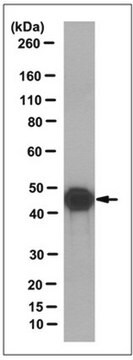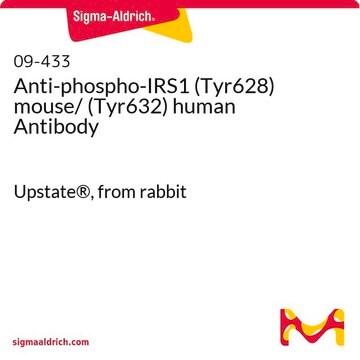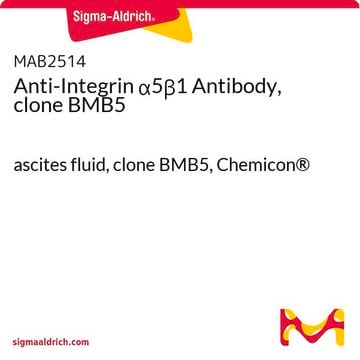MABT37
Anti-Dentin sialoprotein Antibody, clone 2C12.3
clone 2C12.3, from mouse
Sinónimos:
Dentin sialophosphoprotein, Dentin phosphoprotein, Dentin phosphophoryn, DPP2.Dentin sialoprotein, DSP
About This Item
Productos recomendados
biological source
mouse
Quality Level
antibody form
purified immunoglobulin
antibody product type
primary antibodies
clone
2C12.3, monoclonal
species reactivity
mouse, rat
technique(s)
immunohistochemistry: suitable
isotype
IgG2bκ
NCBI accession no.
UniProt accession no.
shipped in
wet ice
target post-translational modification
unmodified
Gene Information
mouse ... Dspp(666279)
Categorías relacionadas
General description
Immunogen
Application
Cell Structure
Cytoskeleton
Quality
Immunohistochemistry Analysis: 1:250-1,000 dilution of this antibody detected Dentin sialophosphoprotein in mouse and rat teeth tissues.
Target description
Physical form
Storage and Stability
Analysis Note
Mouse and rat teeth tissues
Other Notes
Disclaimer
¿No encuentra el producto adecuado?
Pruebe nuestro Herramienta de selección de productos.
Storage Class
12 - Non Combustible Liquids
wgk_germany
WGK 1
flash_point_f
Not applicable
flash_point_c
Not applicable
Certificados de análisis (COA)
Busque Certificados de análisis (COA) introduciendo el número de lote del producto. Los números de lote se encuentran en la etiqueta del producto después de las palabras «Lot» o «Batch»
¿Ya tiene este producto?
Encuentre la documentación para los productos que ha comprado recientemente en la Biblioteca de documentos.
Nuestro equipo de científicos tiene experiencia en todas las áreas de investigación: Ciencias de la vida, Ciencia de los materiales, Síntesis química, Cromatografía, Analítica y muchas otras.
Póngase en contacto con el Servicio técnico








